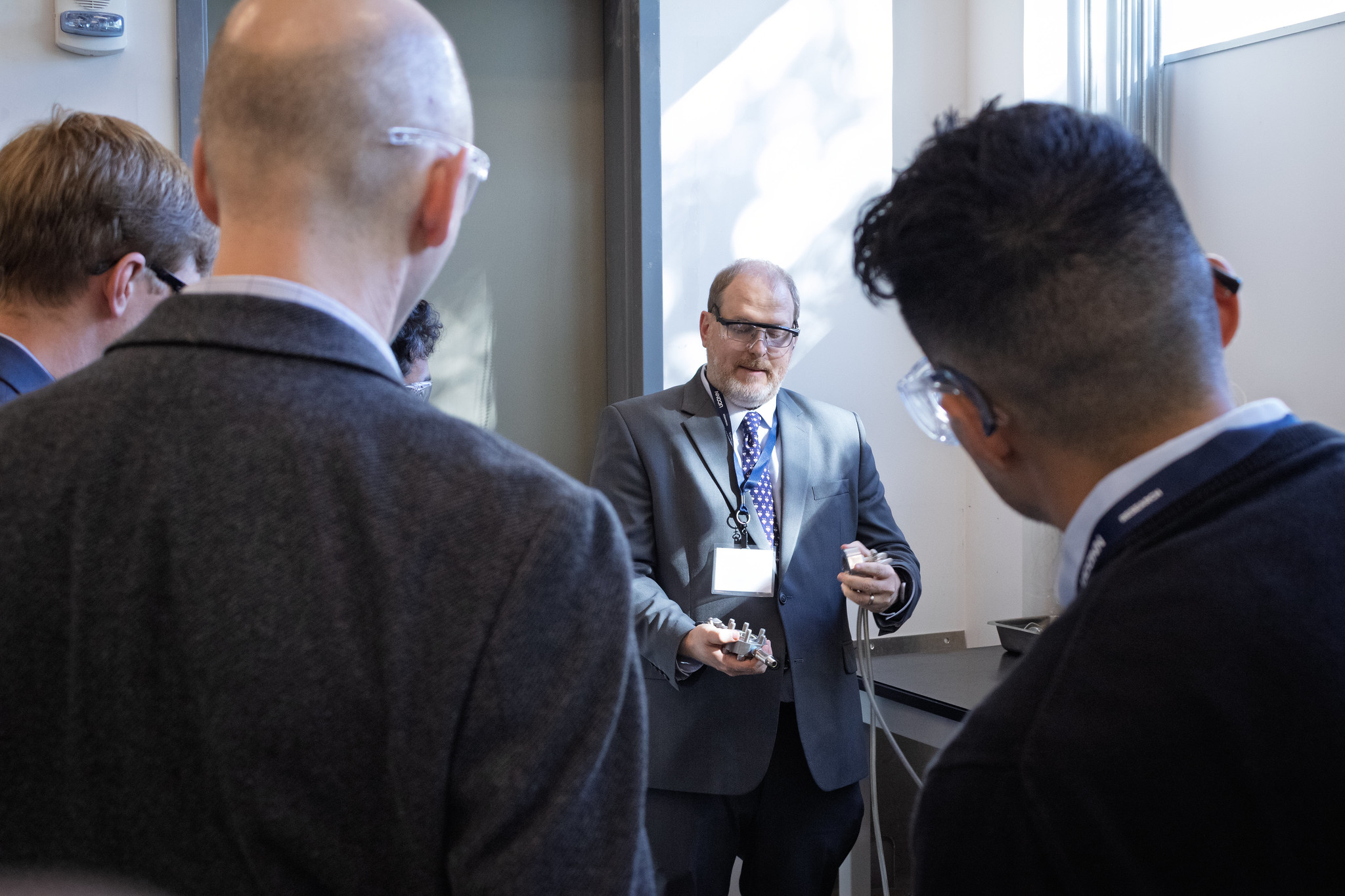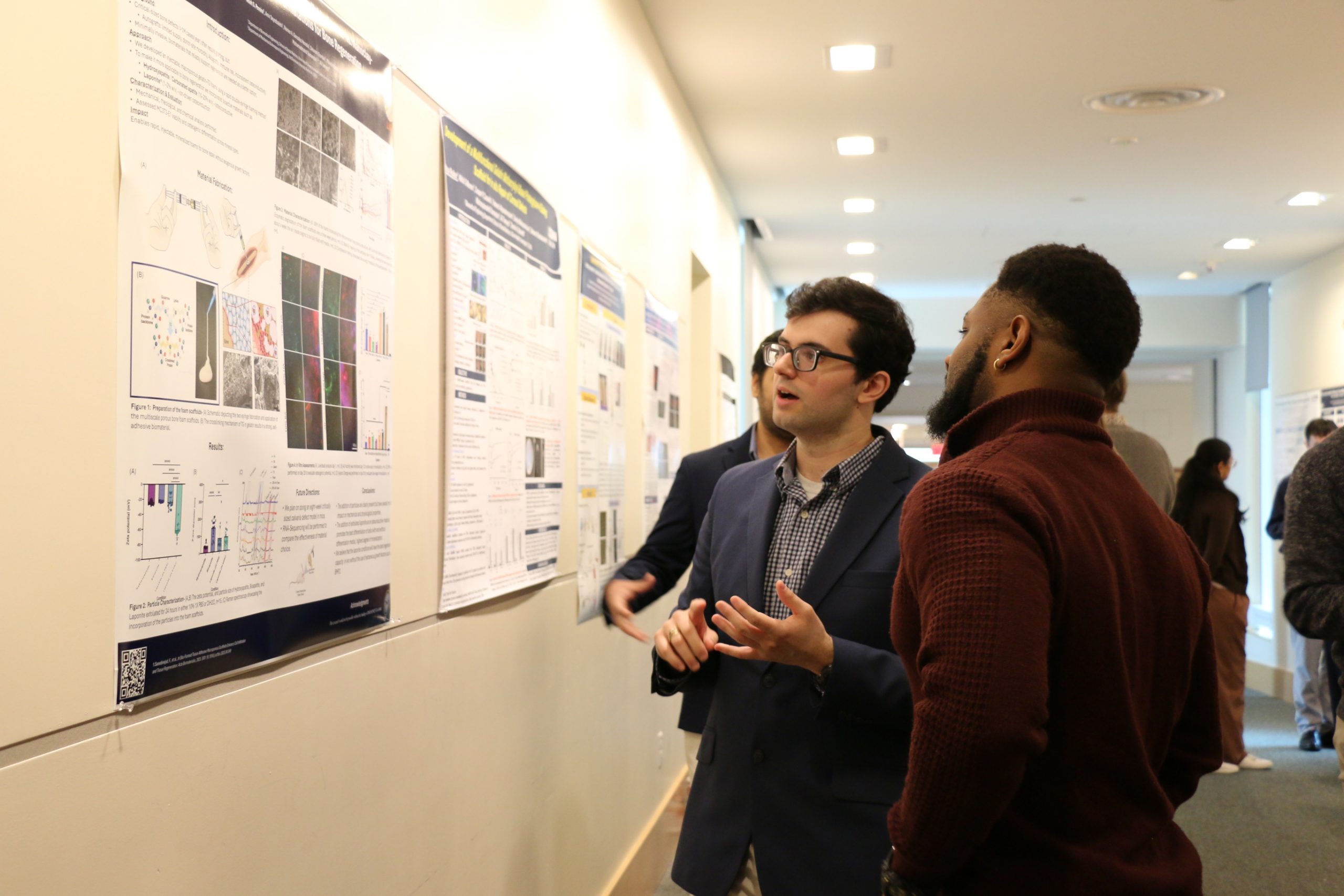By Kat J. McAlpine
 The National Science Foundation has awarded a $400,000 collaborative grant to support Dr. Yu Lei of Chemical Engineering and two colleagues in the development of a superior device for the detection of pathogenic bacteria in food. The three-year research project will involve collaboration across three departments from two New England universities, allotting $300,000 in funds to UConn and $100,000 to UMass-Lowell. Dr. Lei, a biosensing engineer, will work with food scientist Dr. Kumar Venkitanarayanan (UConn Department of Animal Science) and mechanical engineer Dr. Hongwei Sun of UMass-Lowell. The multidisciplinary project team will also include undergraduate and graduate students from both universities. According to Dr. Lei, the success of this research “will have an enormous impact on food safety as well as public health, water quality control and anti-terrorism activities.”
The National Science Foundation has awarded a $400,000 collaborative grant to support Dr. Yu Lei of Chemical Engineering and two colleagues in the development of a superior device for the detection of pathogenic bacteria in food. The three-year research project will involve collaboration across three departments from two New England universities, allotting $300,000 in funds to UConn and $100,000 to UMass-Lowell. Dr. Lei, a biosensing engineer, will work with food scientist Dr. Kumar Venkitanarayanan (UConn Department of Animal Science) and mechanical engineer Dr. Hongwei Sun of UMass-Lowell. The multidisciplinary project team will also include undergraduate and graduate students from both universities. According to Dr. Lei, the success of this research “will have an enormous impact on food safety as well as public health, water quality control and anti-terrorism activities.”
Currently, the technology used to monitor beef, chicken and pork products cannot detect multiple pathogens rapidly, sensitively and simultaneously. Dr. Lei explains that this research will culminate in the creation of a biosensor that will quickly test for multiple classes of microbes with such sensitivity that one single bacterium could trigger a positive result.
The device will enable the detection of the pathogens responsible for the majority of food-borne illness in the United States: Salmonella, Campylobacter, Escherichia coli O157:H7. The higher capabilities of the proposed biosensor will reduce economic loss associated with pathogenic bacteria: these pathogens alone result in $6.9 billion dollars spent annually on treatment of food-borne illnesses. More important, the researchers expect their sensor to increase the speed and accuracy of detection, thereby saving lives.
The team plans to produce a novel device which will integrate a magnetic bead-based immunoassay with a microfluidic-based counting technique. The multiplex mechanism will meet all of the criteria Dr. Lei describes as necessary for efficient pathogenic bacteria detection, such as rapid diagnosis, ultra-sensitivity, high specificity, ease of use, good accessibility and cost effectiveness. The microfluidic-based counting device will replace incalculable man-hours: traditional devices require that results be viewed by a trained eye under microscopic magnification. The standard detection processes take several hours to achieve results while the new biosensor will complete a diagnosis in less than one hour.
The device will lead to improvements in food and water quality control, but also on public health and homeland security issues. The magnetic bead-based immunoassay can be tailored for medical purposes to detect a variety of health-threatening bacteria. In addition, the biosensor could be capable of serving as a “first-responder” resource in the event of a biological terror attack, giving government officials the unprecedented ability to address a threat within an hour’s mark.
The researchers are also enthusiastic about the ways in which this project can excite and expand public interest in engineering careers through a number of outreach venues. The School of Engineering’s teacher outreach program, the da Vinci project, will use these research plans as an instructional tool, and teachers can incorporate the lessons into their classroom curricula in age-appropriate ways as a means to acquaint students with one application of engineering. “If you can educate teachers about what we are doing here and then you account for the number of students each teacher can impact every year, that is a powerful influence,” said Dr. Lei. He and his colleagues also plan to directly address K-12 students through UConn’s Explore Engineering activity, held every summer at the Storrs campus. Similarly, demonstrations will be held at the UMass-Lowell campus as a part of the Women in Sciences and Engineering program in hopes of piquing women’s interest in engineering professions.



